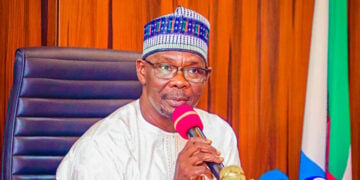The Chairman of the Presidential Committee on Fiscal Policy and Tax Reforms, Taiwo Oyedele, has assured global investors that Nigeria’s ongoing tax reforms were designed to reduce business risks, simplify compliance, and create a fairer and more transparent fiscal environment.
Speaking on the sidelines of the World Bank/International Monetary Fund Annual Meetings in Washington D.C., Oyedele said the reforms were not merely a revenue drive but a structural adjustment to boost investor confidence and promote inclusive growth.
“These reforms are fundamentally about simplifying the system, reducing the cost of doing business, and making tax compliance frictionless,” he said during an interview with Arise News Channel from the World Bank premises on Thursday.
Oyedele noted that Nigeria’s current tax system, with over 60 different levies and fees, has long created uncertainty and discouraged investment.
“We have about 60 different taxes; we are going to repeal and replace obsolete tax laws,” he stated. “The reduction in the number of taxes is aimed at providing clarity and predictability for investors operating in the Nigerian market.”
Key components of the reform package presented to international finance and investment leaders include consolidating multiple taxes into a streamlined structure, leveraging technology for automated compliance, and shifting the tax burden away from low-income earners and small businesses.
Emphasising fairness as the guiding principle of the reform, Oyedele explained that the new tax framework will ensure that wealthier individuals contribute a larger share while vulnerable groups are protected.
“We have been very intentional in balancing out both the rich and the poor,” he said. “The middle class will see a decline in tax burdens, and those at the top end of the spectrum will see a slight increase in their effective tax rate because we need to balance the books as much as possible. Everyone benefits from simplification and efficiency, but the burden must be progressive.”
According to him, households earning below a specified threshold, around ₦250,000 per month, will be exempted from income tax, providing relief amid prevailing economic pressures.
Oyedele said the government’s ultimate goal is to raise Nigeria’s low tax-to-GDP ratio through efficiency and transparency, not through higher rates or additional levies.
By cutting complexity, automating processes, and ensuring predictability, he said, Nigeria aims to create a more business-friendly tax ecosystem that encourages both local enterprise and foreign direct investment.
The IMF/World Bank Annual Meetings, he added, offer a critical platform for the reform committee to engage global stakeholders, align expectations, and secure international confidence in Nigeria’s fiscal direction.





